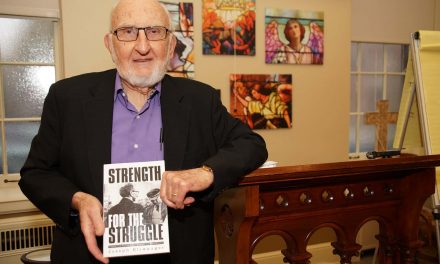
Ever since then, I have been trying to come to terms with the absolute nonsense I saw. So I started researching what many people refer to as the ‘Nonprofit Industrial Complex,’ which included talking to 40 people about their experiences working in nonprofits of different types and sizes. During that time, it became clear that I was not alone in the way I felt, and that all of the things I experienced are common. Disturbingly common.
I left the corporate world early in my career because of the greed and corruption and moved into nonprofits naively thinking it would be different. Doing ‘Good’ work meant that everyone was good, so I thought. Unfortunately, in some cases, nonprofits can be even worse for two main reasons: the lack of institutional oversight and the habit of using nonprofits as a poor substitute for the long-term change our communities need.
WHY DID I LEAVE?
It is my privilege to work with those asking for help. And I believe that when a person is in a position to serve others, it is our responsibility to make their dignity the main priority. The poor, the disenfranchised, the ones most in need, often they can not refuse help, even in undignified situations, because it could literally mean life or death. It is the duty of those who serve to keep that dignity intact. The sad truth is, in the nonprofit world, dignity is often an afterthought and accountability for it and basically everything else is totally inadequate.
I have seen it firsthand. Youth of color asked to perform songs and dance for mostly old white funders to help raise money that they will never see or benefit from is not dignity. Referring to people nonprofits serve as the ‘product’ to be offered to corporations for profit is not dignity. Tens of thousands of dollars meant for service thrown in the trash because of mismanagement and/or corruption is not dignity. Silencing employees who ask for fair pay and financial transparency is not dignity And ignoring concerns raised about dignity is not dignity.
This is what bothered me the most about my experience in nonprofits. I am still not over it, and never will be. I have seen some attempts to make progress, especially recently, but I feel the root causes still do not get addressed.
A DEAFENING SILENCE
When people see a need in their community, it compels them to get involved, and the nonprofit sector is a typical starting point. For many, it is more fulfilling than a standard 9-to-5 job where profits, not people, are seemingly the main focus. There are a lot of people who do hard work under terrible circumstances because of that. Anyone who has worked in nonprofits have seen other employees burn themselves out working long hours, under high pressure, and for little pay. But for many, their belief in the work drives them to push past any obstacles, including serious moral concerns. It is not just employees who turn a blind eye to these and other problems, it is everybody in the system.
On the rare occasions when people do call out ethical issues, they are often swept under the rug. There is usually someone around to remind everyone, ‘a hit to our reputation could mean losing donations and our ability to continue the work.’ Ego also comes into play more than I ever expected from supposedly altruistic personalities. Some nonprofit leaders revel in the status and notoriety their work in the community grants them, and will take drastic measures to hold onto that position.
If we cannot even talk about these problems openly, how do we expect to change this system? Containing absurdity becomes the norm, and poverty panderer continues as standard procedure.
SUGGESTED, BUT NOT REQUIRED
One of the first things I wanted to better understand after I left the industry was nonprofit accountability and oversight.
Upon request, nonprofits are required to provide copies of their three most recently filed annual returns (IRS Form 990) and the organization’s application for tax-exemption. There are tons of laws they must follow, but that is it for transparency. Everything else is just ‘suggested, but not required’ for organizations funded by public money, serving vulnerable people in our community.
Some of the things that are rarely even suggested, and definitely not required are detailed financial information made available to the public, reviews of expenditures and travel policies, conflict of interest policies, financial management polices, executive compensation policies and routine audits. And checks to make sure the people served are being treated with dignity and respect, my initial complaint.
Most people who start a nonprofit are just regular people who see a need and want to help. Understandably, they might not have all the needed skills to run an organization. They might hire people who do or gain them over time. There is honor in that. If someone wants to feed a hungry person or offer free tutoring right now, they should not be forced to get a degree or some expensive certification. We have great people in our communities with real world experience, who give their blood, sweat, and tears every single day. These people should be the ones on the front lines.
But this habit of people with no experience founding full-on organizations can lead to a bunch of obvious problems. The main one is the possibility of unqualified people being in charge of other people’s welfare. This is where there is lots of room to take advantage of the gap in oversight.
Suddenly unqualified and irresponsible people might have access to large amounts of money they may have never seen otherwise. A Board of Directors is usually the group providing that oversight to keep things in check. That comes with serious responsibilities and real consequences. Some Boards can be personally held liable for financial impropriety. However, when change needs to happen it can literally take years to do with all the red tape, and assumptions of the good and personal relationships that are often involved.
There is ‘mission drift’ where organizations change their mission and focus according to funding trends. It is also common for orgs to judge themselves on self-created metrics, making them become their own judge and jury. Organizations that get funding per student leads to incentives based on quantity not quality, and the people they serve not having a voice or real power in determining how the org treats them and their peers. All of this pushes the concerns and needs of people they intend to serve lower and lower on the priority list.
Foundations and big funders are not always open about issues either, because they are concerned over their status as well. If an initiative or org they have supported fails, they will often keep quiet. When large funders put their name behind something and publicly brag about how great it is, communities trust that. But when things goes bad it is silence, except for the sound of crickets. They do not draft press releases about those things.
If the average member of the community hears a ‘nice’ story about people in need and someone helping them, it is normal to want to believe in that. People may not have the time or a reason to verify anything an organization says before donating, volunteering, or supporting it. Individuals may also rely on the co-sign of established funders, Board members with big names, and loyal employees. It makes sense that if all these people say it is good, it must be. But no, it is not.
If the public found out the reality of what happens behind the scenes at some orgs, then they may justifiably lose faith. As a community, we get treated like kids who have parents that are too scared to tell them Santa does not exist. No one is willing to risk upsetting anyone or calling anyone out to be accountable. To some people, the feeling of a false peace is more important than needed conflict and painful growth, even if that comes at the expense of dignity.
WHO REALLY BENEFITS?
Another big question I had to confront was, ‘Who really benefits from this current system, from the way things are?’
Think about all the people who have life-long careers that hinge on the endless suffering of poor and disenfranchised people. It is sickening. I was watching the documentary Poverty Inc. and was repulsed by a person interviewed who had no shame talking about how working for NGOs made him very wealthy, as he sat in the backyard of his English castle. That is the definition of a professional poverty pimp.
Most nonprofits are run by white folks, many who live outside of the communities they serve. Jordan Flaherty’s article ’Saviors’ Believe That They Are Better Than the People They Are ‘Saving’ hit me hard, especially this point: “When charities and other nonprofits seek to ‘save’ poor people, they often end up perpetuating unjust hierarchies. Sixty percent of U.S. nonprofits see their mission as serving people of color. Sixty-three percent say that diversity is a key value of their organization. Yet ninety-three percent of nonprofit chief executives, ninety-two percent of their boards, and eighty-two percent of their staff are white. Thirty percent of nonprofit boards are all-white.”
It is contradictory for organizations to send these messages of hope if people they serve rarely or never see anyone that looks like them in a position of power there. Representation matters.
I have seen big donors throw cash at a cause and take a picture with a big check in hand, and then walk right past people that the money is meant to help without making eye contact. Then the next day, they will advocate for policies and politicians that put more money into their own pockets, but at the same time destroy our communities.
In his book Decoded, Jay-Z wrote, “To some degree, charity is a racket in a capitalist system, a way of making our obligations to each other optional, and of keeping poor people feeling a sense of indebtedness to the rich, even if the rich spend every other day exploiting those same people.”
That answers my initial question of who benefits. There is no real incentive for those in power to change their approach. In the meantime, we happily accept the scraps we are given.
A WORLD WITHOUT NONPROFITS
According to Wisconsin Nonprofit Association, “Government continues to rely on nonprofits to perform a number of key functions in our communities” and “Nonprofit organizations are key community players frequently called upon to address critical community needs.” Why is that?
Besides emergency services and those looking to cure new diseases, many of these nonprofits could and should be temporary, not staples in the community. In a perfect world, most of them would go away over time because the issues they were meant to help solve would be solved. An obvious example is the American Cancer Society shutting down because we find a cure for cancer. I want to put them all out of jobs, including myself, which would be a good thing.
Instead, they are a growing business. According to a 2016 report, “The nonprofit sector has grown by twenty over the last ten years, in contrast to a growth rate of about two to three percent in the for-profit sector.”
We have one of the highest nonprofits-per-capita ratios here in Wisconsin, which leaves us in a constant cycle of begging for money for disjointed programs versus long-term structural change. The mentality is, “Let’s start a nonprofit” versus “Let’s destroy and rebuild these systems that got us here.” We need these orgs until our communities get better, so I am glad some of them exist. But we need to find solutions that address the structural issues that make them necessary, according to our very own government.
These fragmented nonprofits are incapable of serving everyone in need and are fighting each other for the same dollars year after year. It is not a realistic short-term or long-term solution.
The solution has to be two-fold if we want what’s best: Fixing the problems now, while also working towards fixing the root causes that create the need for nonprofits. Nonprofits can do both. They should all have a long-term action plan detailing how and when they can phase themselves out of existence. This has to be focused on just as much as their immediate and day-to-day work. Also, this is where orgs and community leaders could use their status and influence to shift the social, economic, and political landscapes by working together to develop and implement these long-term strategies. But who is willing to fire themselves and be willing to put down their pride?
Former Senator Herb Kohl recently funded all Wisconsin teacher requests on DonorsChoose.org, which helped 600 teachers and 43,000 students. On the site, teachers post projects requesting materials they need for their classrooms and people can donate to help get them. It is great he did that, but also sad that there are so many classrooms in need to this type of assistance just to function. DonorsChoose.org advertises that “teachers at 75% of public schools in America have posted a project on our site.” In the short-term, I am truly glad this nonprofit exists to help fill in the gaps, and they are extremely transparent. But long-term, how can we properly fund our schools and communities so they do not need outside support like this?
Every youth in America should have access to quality arts programming. A good education, training and high paying jobs should be available to all. People with mental health issues should be served humanely before they encounter a police officer in Red Arrow Park. Quality services should not be limited to the few people that have access to specific nonprofit services. We cannot continue to use nonprofits as a replacement for real structural change.
QUESTIONS WE SHOULD ALL BE ASKING
I am not making a case to shut down every nonprofit right now or create some watchdog organization. I am just saying we all have to slow down. We need to ask more questions and demand transparency before we get involved, donate, or deem something worthy for our community. It is on us, it is our responsibility. Like everything else, we have to hold these nonprofits and funders accountable. The ones right now, who are supposed to be doing that, are failing us. We have to think differently. We have to ask questions.
These are some of the things I will need to know from any nonprofit I deal with in any capacity in the future. They are asked from different perspectives.
- How will my donation be used? Please explain in detail.
- What percentage of your budget goes directly to support your mission?
- What are the salaries here and what is the ratio of staff salaries to the overall budget?
- Is detailed financial information updated annually and available publicly for review?
- Is this org independently audited to determine if money is spent appropriately? If so, are the results available for the community to see?
- What is your relationship to your employees and your Board of Directors?
- Who are your funders and where does their money come from? How are they personally involved in this community?
- How often have you changed your mission statement and why?
- Are the people you serve ever asked to perform in front of funders?
- Do you have reports available regarding how dignified the people you served felt?
- Were these reports done internally or by an outside service?
- Do you have standards and limits on using people you serve in promotional material?
- What is the long term strategy to end the need for this nonprofit?
- Is there another organization doing similar work, and can you partner or merge with to have a larger impact?
- If I work in nonprofits, how and when can I fire myself and shut this place down because it is no longer needed?
Even understanding all this rubbish, I, along with everyone else I talked to, felt that there is generally a positive impact being made. Good people make good stuff happen no matter what. But they also spoke about how much further along we could be if real change happened. We can set higher standards, destroy corrupt systems, create better ones, and give the best to those we serve. I do not have all the answers, but I do think it starts with asking questions instead of accepting the way things are.
So please, do not be like me. Better yet, do not even believe me. Look into the situation and talk to friends that work at nonprofits. And most importantly, do not assume things are good because of a nice story. Do not be afraid to ask questions and upset people if you need to.
Originally published as DON’T BE LIKE ME: How Dignity Is An Afterthought In The Nonprofit World















